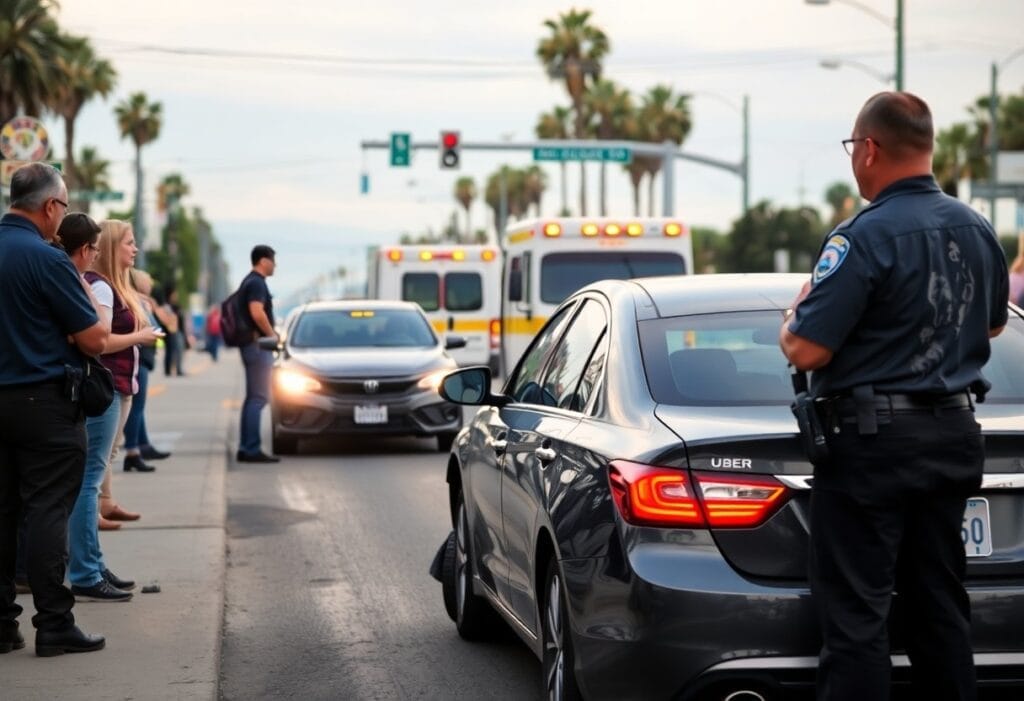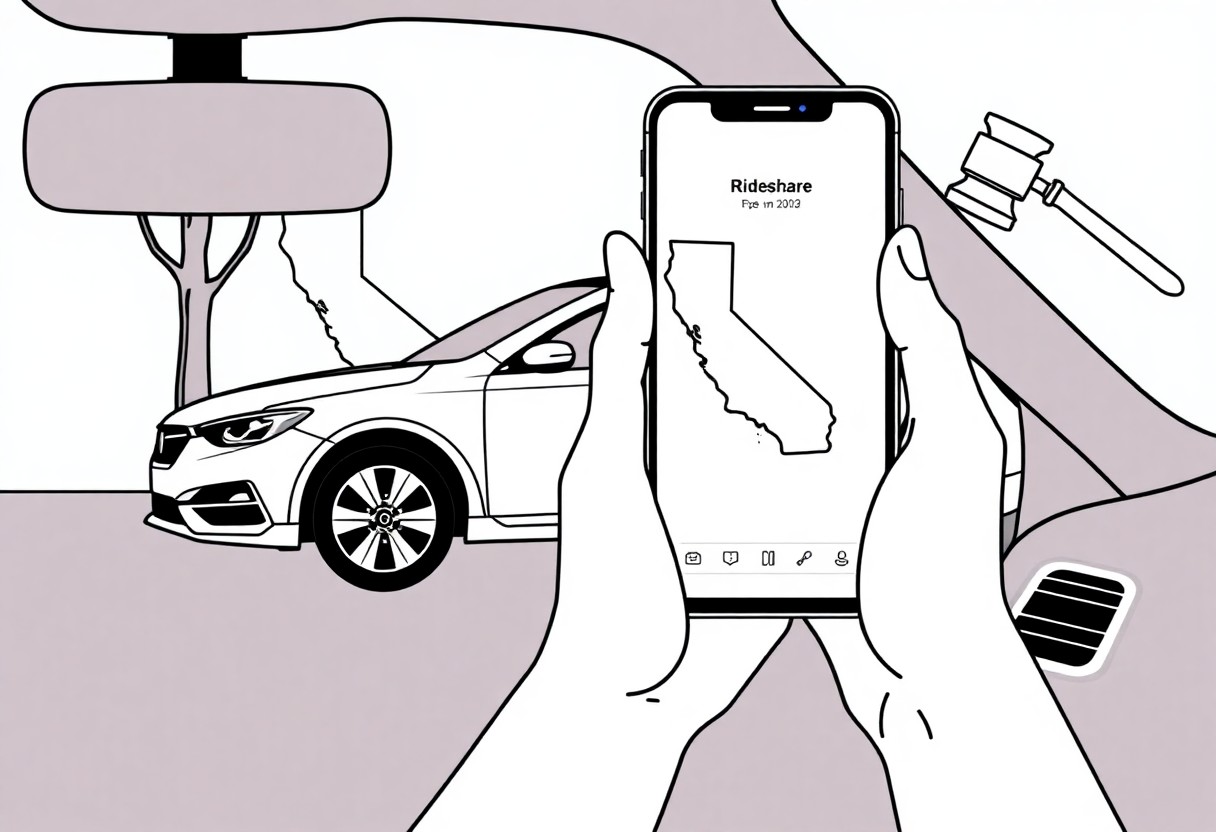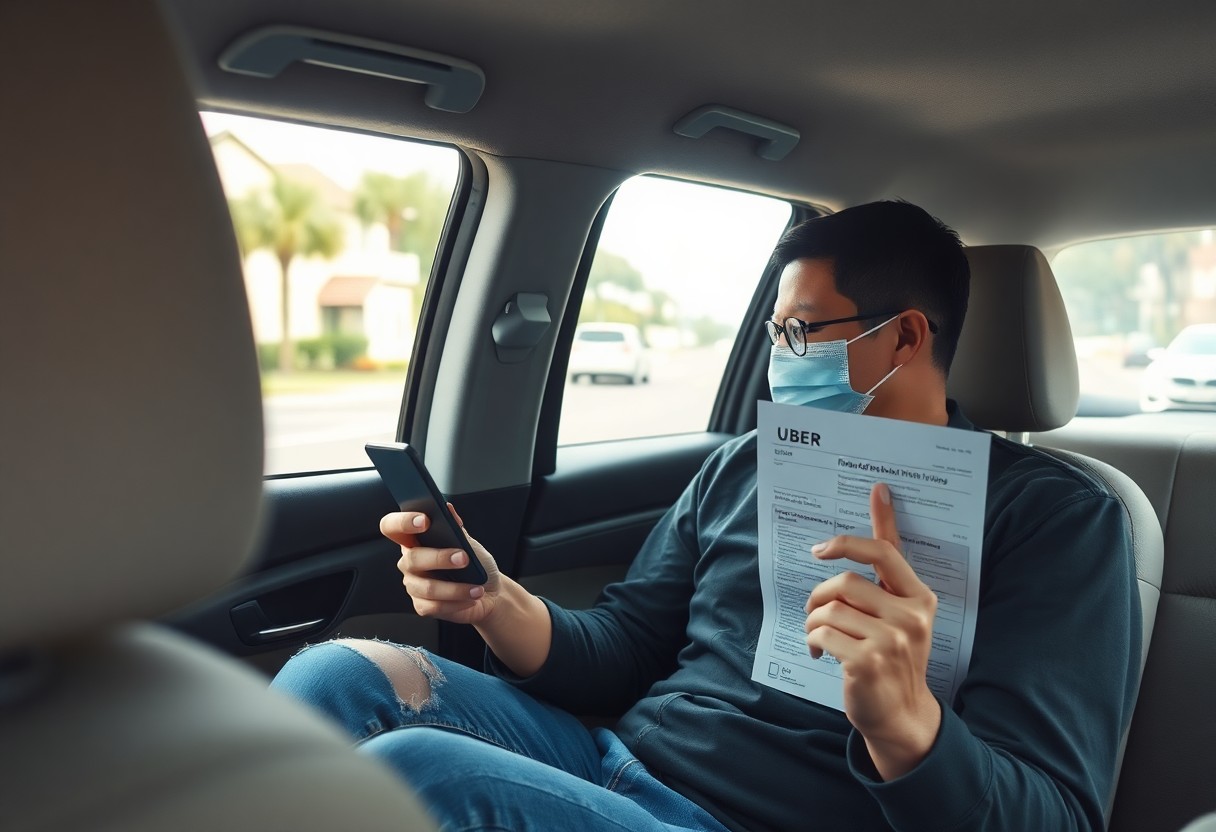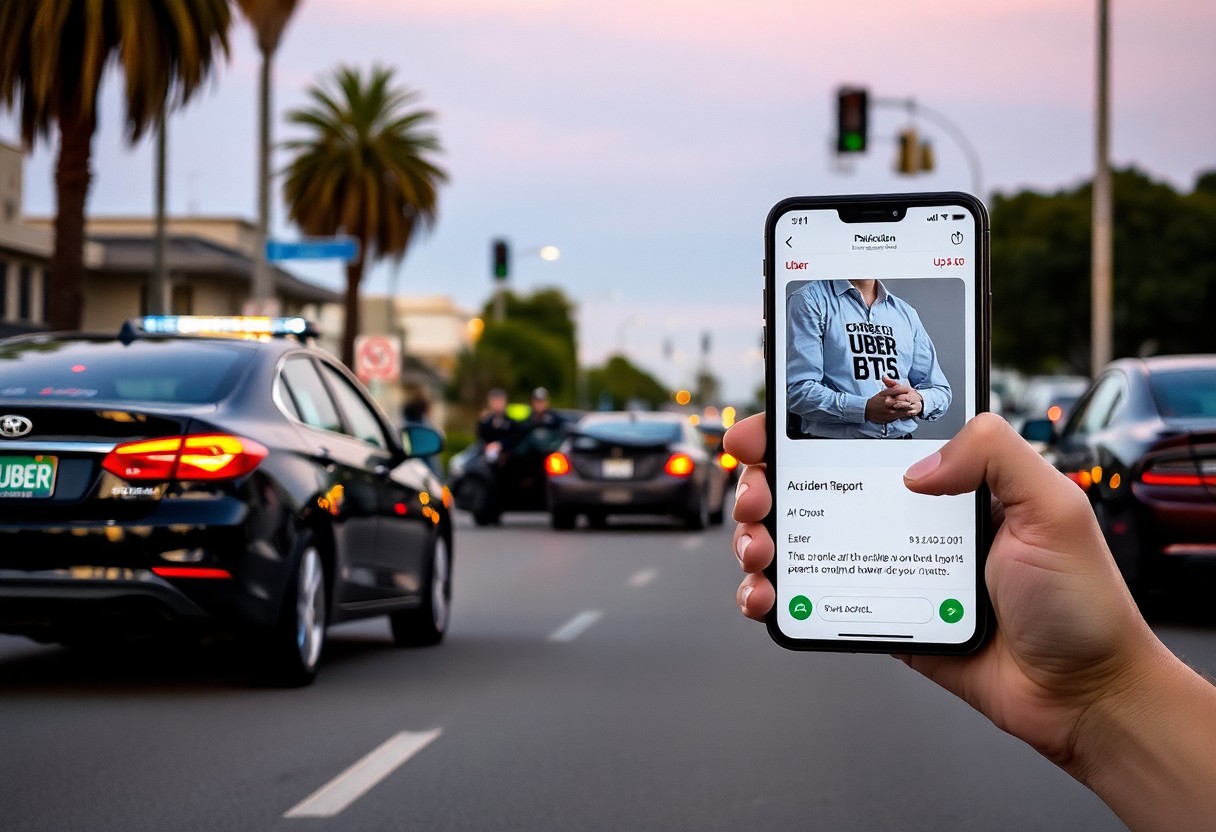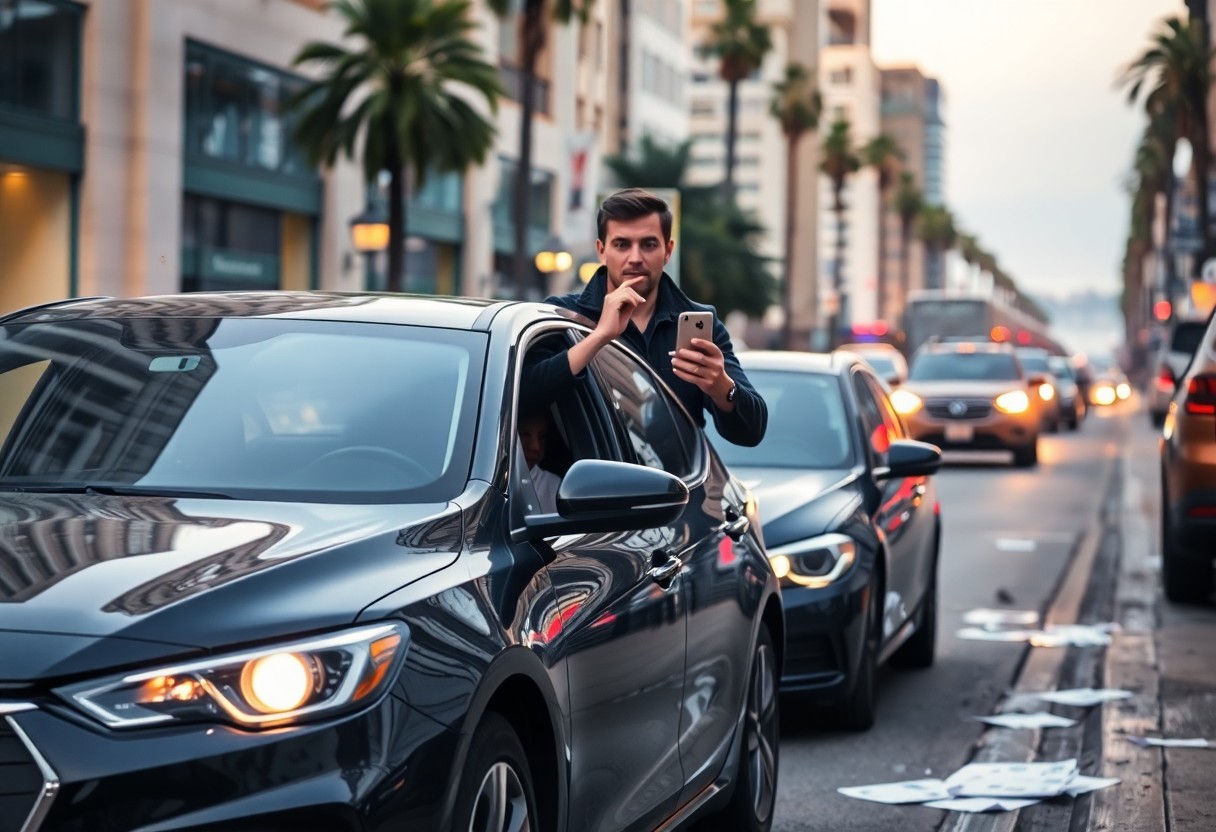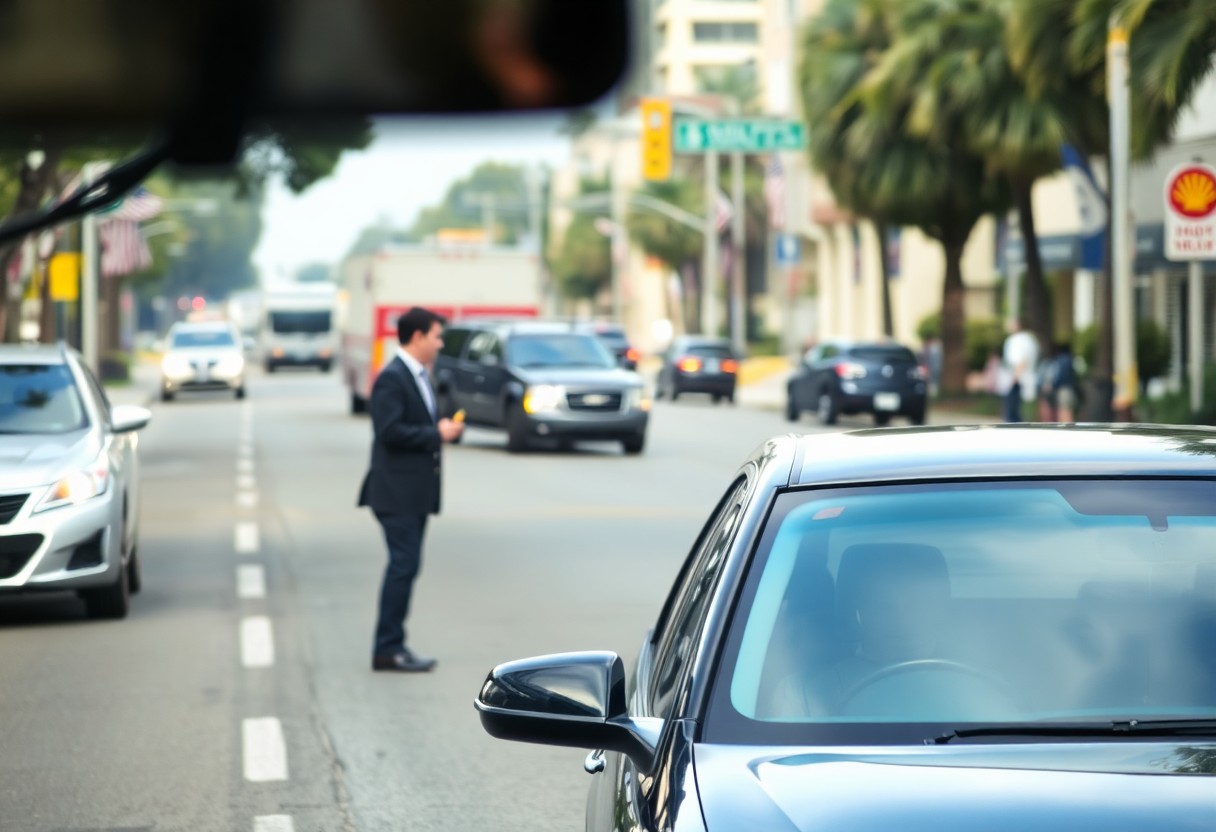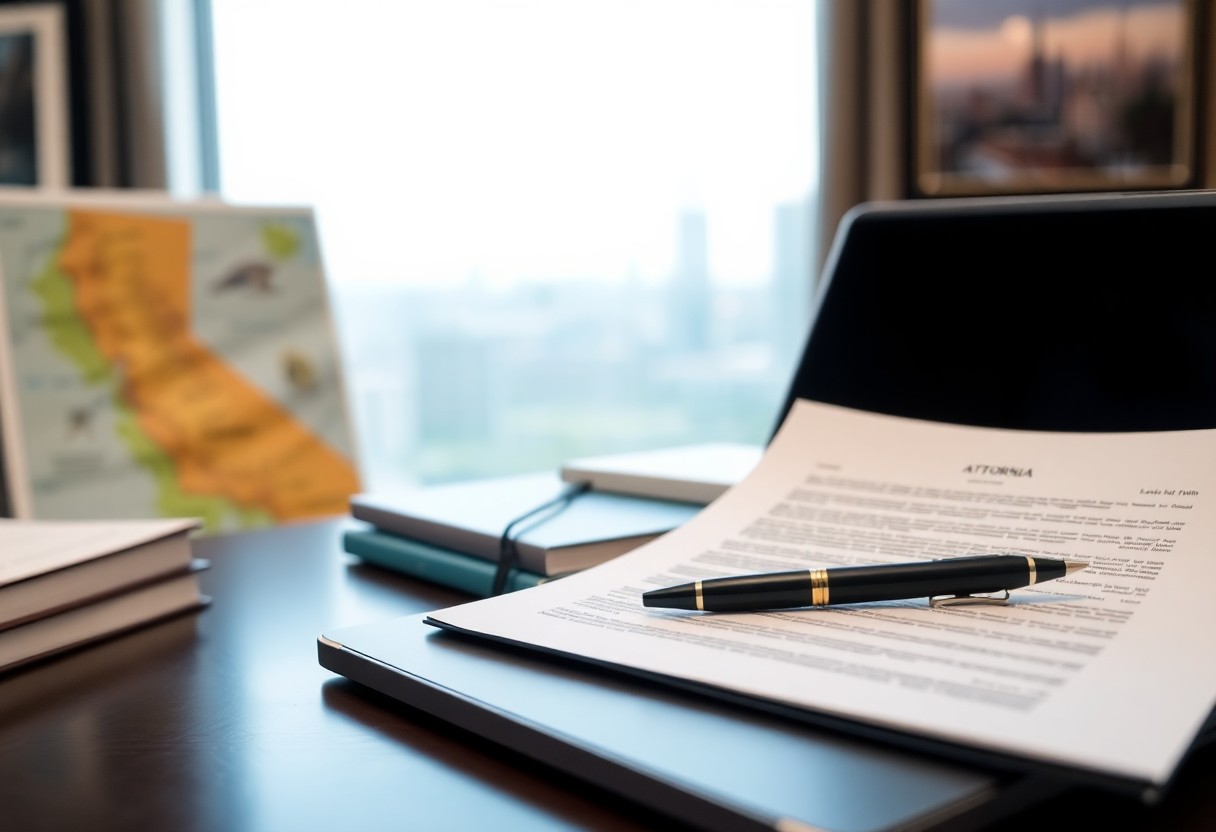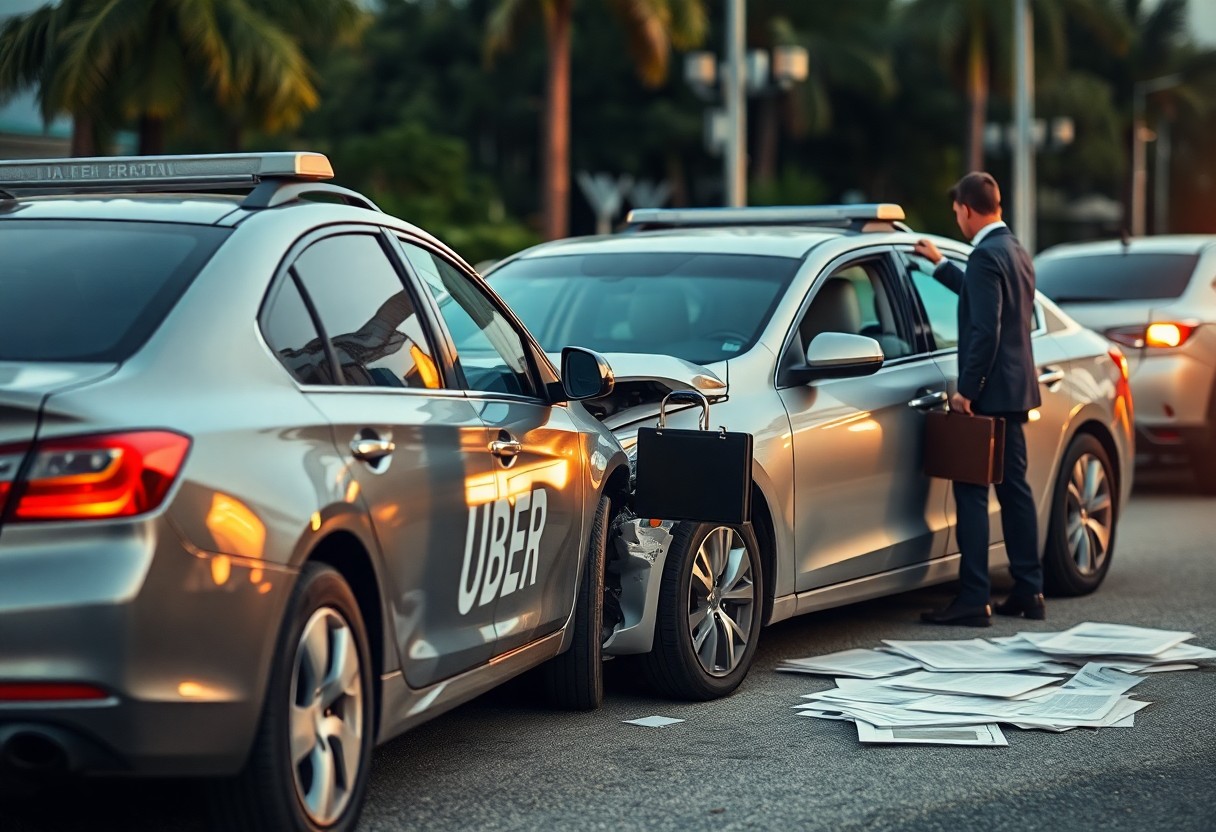Most people believe that using Uber is a safe way to travel, but accidents can happen, and they can be overwhelming. If you find yourself in an Uber accident in California, it’s crucial to stay calm and take immediate action to protect your rights and well-being. Your first step should be to prioritize your safety and that of others involved, while also documenting the incident thoroughly. In this blog post, we will guide you through the steps you should take right after an accident, emphasizing why trusting Uber might not be in your best interest.
Key Takeaways:
- Seek Medical Attention: Your health is the top priority. Always get checked by a medical professional, even if injuries seem minor.
- Document Everything: Gather evidence at the scene, including photos, witness contact information, and a detailed account of the incident.
- Contact an Attorney: Before discussing the accident with Uber’s insurance, consult a personal injury attorney to understand your rights and options.
Understanding Uber’s Insurance Policy
Your understanding of Uber’s insurance policy can play an vital role in navigating the aftermath of an accident. Uber provides a specific insurance coverage that varies depending on the status of the driver at the time of the incident. It’s vital for you to be aware of these distinctions to ensure you have the right protection in place for yourself and your passengers.
Personal Insurance vs. Uber’s Coverage
Ubers’ policy offers different layers of coverage that may conflict with your personal insurance. For example, when you’re riding in an Uber, if the driver is logged into the app and waiting for a ride request, they are covered by Uber’s liability insurance. However, if the driver is not actively using the app, your personal insurance would likely have to cover any damages incurred during the accident. This means you may need to turn to your own insurance to fill in gaps that Uber’s policy does not cover.
When Coverage Applies
On the other hand, understanding when Uber’s coverage applies can help you determine your next steps after an accident. Uber’s insurance kicks in during specific phases of the ride: while the app is on and the driver is en route to pick you up, and throughout the duration of your trip. In these critical moments, should an accident occur, Uber’s coverage may provide up to $1 million in liability insurance for injuries or damages. However, if the accident happens when the driver is offline or not accepting rides, you may be left relying solely on your personal insurance.
Insurance coverage is not a one-size-fits-all situation. Depending on the circumstances of the accident and the status of the driver, Uber’s insurance policy may fully cover damages, or you may be faced with out-of-pocket expenses. Therefore, if you find yourself in an Uber accident, it’s vital to evaluate the timing of the incident and how Uber and your insurance might share the responsibility. Always investigate the particulars of both your personal and Uber’s coverage to ensure you are adequately protected.
Immediate Steps to Take After an Accident
Ensuring Safety and Health
Below are the immediate actions you should take to prioritize your safety and health after an Uber accident. First, make sure you and any passengers are in a safe location away from traffic, if possible. Assess your physical condition and that of others involved in the accident. If anyone is injured, immediately call 911 to seek medical attention. Even if you feel fine, it’s a good practice to have a medical professional evaluate you, as some injuries may not be immediately apparent.
Additionally, check on the condition of the Uber driver and other parties involved in the incident. If it is safe to do so, offer assistance to anyone in need. It is important to gather as much information as possible about the situation, including the vehicles involved and other witnesses. The more information you can collect at this stage, the better you will be equipped to handle any complicated claims later.
Documenting the Incident
Ensuring you thoroughly document the incident is vital for any future claims and legal actions. Take notes of the accident scene while it’s fresh in your mind, including the time, location, and circumstances surrounding the accident. Use your smartphone to capture photographs of the vehicles involved, any visible damages, and the surrounding environment. Collect contact information from other drivers and witnesses, as this will bolster your account of events.
Hence, having an organized record of the incident can significantly influence your case’s outcome. Take note of license plate numbers, insurance details, and the driver’s name and contact information. Your own health and safety must always come first, but documenting every aspect of the accident can provide vital support should you need to navigate the insurance process or pursue legal actions later on.
Importance of Evidence Collection
Many people underestimate the significance of gathering evidence immediately after an Uber accident, but this step is vital for establishing liability and supporting your claim. In California, the process can involve multiple factors, particularly because rideshare companies like Uber may have their own set of rules and expectations. By collecting solid evidence from the scene, you will strengthen your position if you choose to pursue any claims against the driver or Uber itself.
Gathering Witness Information
Collection of witness information can significantly bolster your case after an accident. If there are bystanders or other drivers who witnessed the events, obtaining their names and contact information should be a top priority. These individuals can provide impartial accounts of what transpired, which can support your version of events. As Uber accidents often involve multiple parties, having reliable witnesses can help clarify any discrepancies that arise in reports from involved drivers or from Uber’s own investigation.
Taking Photos and Notes
Witness statements are beneficial, but equally important is your own collection of evidence through photos and notes. After an accident, documenting the scene with clear photographs of the vehicles involved, any damage, road conditions, and traffic signs will help build your case. Additionally, jotting down your immediate observations or conversations you overheard can serve as critical reminders of the incident, especially if you have to make your case weeks or months later.
Considering the fast-paced nature of accidents, you may find that details fade from your memory quickly. Therefore, taking the time to capture detailed photos—showing the positions of the vehicles, skid marks, and even the surrounding area—is vital. This can provide a clearer picture of the accident and establish context. Notes about the time, weather conditions, and how the accident occurred will also be beneficial when you’re following up with legal processes or insurance claims. These efforts not only create a strong record but also avoid relying solely on Uber’s narrative, which may not be in your favor.
Reporting the Accident
Despite the chaos that follows an Uber accident, it is imperative to report the incident to the appropriate parties promptly. Failing to do so could jeopardize your chances of making a successful claim for damages. Start by documenting the scene as thoroughly as possible, taking photos of the vehicles involved, any visible injuries, and the surrounding environment. This evidence will be invaluable when you file your report or seek legal assistance later. Additionally, ensure you exchange contact and insurance information with the Uber driver, as you may need it for your records or any future legal action.
Notifying the Authorities
To kick off the reporting process, you should immediately notify the authorities. Call 911 if anyone is injured or there is significant property damage. The police will arrive to assess the situation and file an official accident report, which can serve as a crucial document when submitting your insurance claim. Make sure to provide accurate facts about the incident and avoid speculating about fault. The responding officers will collect statements and evidence, which can significantly influence the outcome of your case.
Contacting Uber Support
Behind every Uber ride is a support system designed to assist riders and drivers alike in case of an incident. Once you have ensured everyone’s safety and the authorities have been notified, your next step is to contact Uber Support. You can do this through the Uber app or their website, where you will find options specifically for reporting accidents. Be sure to provide as much detail as possible about the incident, including the time, location, and nature of the accident, as this will help Uber assess the situation appropriately.
But when you contact Uber Support, you must remain vigilant. The company may attempt to limit their liability or downplay the seriousness of the accident. Stay firm and clear about your experience, and do not hesitate to request a full review of the incident. This communication can impact not only the handling of your claim but also the overall accountability of the driver. By taking this step, you position yourself to gain vital assistance while keeping Uber aware that you are serious about addressing the consequences of the accident.
Legal Considerations
For many individuals, navigating the aftermath of an Uber accident involves a myriad of legal complexities. Understanding your rights and obligations is vital, especially if you intend to pursue compensation for your injuries or damages. One of the first steps is to document all pertinent details regarding the accident, such as the time, location, and any witness statements. You may think that cooperating fully with Uber’s insurance or legal teams will work in your favor; however, it is vital to recognize that their goal is often to minimize liability and not necessarily to support your best interests.
What to Discuss with Law Enforcement
After any accident, it is important to engage with law enforcement promptly. They will typically arrive, assess the scene, and file a report, which can be pivotal for any future claims. Be clear and concise when providing your account of events. Avoid admitting fault or making statements that could be misinterpreted as acknowledgment of guilt. Focus on delivering the facts surrounding the incident, and ensure that all involved parties receive equal attention. Additionally, insist on obtaining a copy of the police report as it can serve as an important piece of evidence down the line.
Consulting with an Attorney
With the complexities of personal injury cases, consulting with an attorney should not be overlooked. An experienced legal professional can guide you through the myriad of regulations, particularly those associated with rideshare services like Uber. They will assess the accident’s details, explain your options, and help you gather the necessary documentation for your case. The nuances involved in rideshare legal proceedings can be challenging to navigate alone, making the expertise of an attorney a significant asset.
Enforcement of your legal rights requires a strategic approach. Engaging a skilled attorney familiar with California’s rideshare laws ensures that you do not miss critical deadlines or neglect important legal elements that could strengthen your case. An attorney can also provide you with insight into potential settlements or paths for legal action, increasing your chances of a favorable outcome. Protect your interests by seeking professional advice as soon as possible after the accident.
Common Mistakes to Avoid
Now, as you navigate the aftermath of an Uber accident, it’s necessary to be aware of the common mistakes that can jeopardize your case. One such mistake is discussing fault with others, which can inadvertently complicate or undermine your position.
Discussing Fault with Others
An accident can be a highly emotional and confusing time. It’s important that you avoid engaging in conversations about fault with anyone at the scene, including the other driver, passengers, or even bystanders. Statements made in the heat of the moment can be misconstrued or misinterpreted, potentially damaging your claim. Instead, focus on gathering evidence, taking photos, and getting witness information.
Trusting Uber’s Claims Process
Trusting Uber’s claims process can also lead to significant pitfalls. While Uber may present itself as helpful and supportive immediately after an accident, their main objective is to protect their interests. You should not rely solely on their claims representatives to prioritize your needs or provide comprehensive support.
Further complicating matters, Uber’s claims process may involve a delay in payment or settlements that may not fully reflect your losses. It’s necessary to assess your medical expenses, lost wages, and other damages independently, rather than relying on Uber’s determination of your compensation. Engaging with a transportation accident attorney can provide valuable insights into your rights and ensure you receive a fair evaluation, safely navigating the complex insurance landscape.
Summing up
The aftermath of an Uber accident in California can be overwhelming, but knowing what steps to take can help you safeguard your interests. First and foremost, you should prioritize your safety and well-being by seeking medical attention, even if your injuries seem minor at first. After ensuring everyone’s safety, gather evidence from the scene, including photos, witness information, and police reports. This information will be vital when dealing with insurance claims and any potential legal actions. Don’t rely solely on Uber’s support; their primary goal is to protect their business interests, which may not align with yours.
Additionally, consider reaching out to a legal professional who specializes in rideshare accidents to navigate the complex landscape of liability and insurance. This may be especially important because Uber drivers are typically considered independent contractors, complicating the process of accountability. By taking these informed steps, you empower yourself to effectively manage the situation, safeguard your rights, and pursue any deserved compensation. You deserve to be treated with respect and receive fair compensation for your experiences, so do not hesitate to take the necessary measures to ensure your voice is heard.


